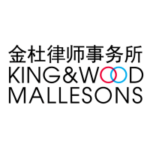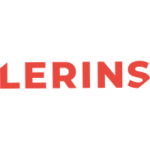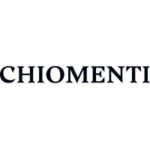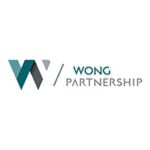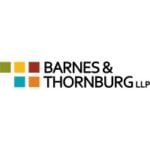Note: Where the answers to the following questions refer to regulations that are fully harmonised at European level (e.g., Medical Device Regulation), reference may be made to the respective answer in the chapter on Europe of this guide for the parts dealing with these fully harmonised regulations.
-
Please briefly summarize your country's legislative framework for medicinal products (including biologicals), medical devices, food, and food supplements
Medicinal products (including biologicals) in Serbia are regulated in the Medicines and Medical Devices Act of 2010 (as amended) (“Medicines Act”) and several rulebooks which regulate in detail different matters related to medicinal products.
The sections of the Medicines Act regulating medical devices have ceased to apply as of December 2018, as medical devices were regulated separately in the Medical Devices Act of 2017 and the by-laws adopted on its basis.
Food and food supplements are regulated by the Food Safety Act of 2009 (as amended), Supervision of Plant-Based Food Products Act of 1996 (as amended), and several rulebooks regulating specific matters related to food safety. Food supplements are also separately regulated by the recently enacted Rulebook on food supplements (dietary supplements) of 2023.
-
With regards to medicinal products and medical devices, how is the regulatory process structured in your jurisdiction from R&D through market approval until post-marketing vigilance, and what rules does it follow? Please briefly describe.
Medicinal products
For medicinal products, the Medicines Act, and a series of implementing by-laws adopted by the Ministry of Health govern the regulatory requirements for clinical trials, marketing authorization, placing of medicines on the market, and post-marketing vigilance. These regulations substantially largely rely on the relevant EU regulations, particularly Directive 2001/83 on the Community Code relating to medicines for human use.
To be granted a marketing authorization, a medicinal product must undergo pharmaceutical (pharmaceutical, chemical, and biological), pharmaco-toxicological and clinical trials and satisfy conditions related to its quality, safety, and efficacy. The Medicines and Medical Devices Agency (“ALIMS”) is the competent authority for issuing marketing authorizations. ALIMS conducts a formal review of an application for marketing authorization within 30 days, while the deadline for the substantive review is 210 days. In case of an incomplete file, ALIMS requests additional documents from the applicant and the clock stops until submission of those documents. Medicinal products which obtained a marketing authorization in accordance with the EU centralized procedure, as well as the medicines for human use of utmost importance for public healthcare may be approved in an accelerated procedure, which may last no longer than 150 days from receipt of a complete application. However, in practice the procedures before ALIMS take longer due to the large number of applications and the insufficient capacities of the authority.
The Medicines Act and the implementing by-laws also regulate labelling and the contents of patient information leaflets. The patient information leaflet and the labelling text of the packaging constitute an integral part of marketing authorization. Medicines must be labelled in Serbian, and the patient information leaflet must be enclosed in the packaging in Serbian and must be comprehensible and compliant with the summary of the product’s characteristics.
The Medicines Act and the implementing Rulebook on Advertising of Medicines regulate the advertising of medicinal products. Stating the name of a medicinal product, its international non-proprietary name, or a trademark, if it serves only as a reminder, does not amount to advertising. ALIMS must approve promotional materials and other documentation supporting the advertising of medicines, which in practice often delays the placing of the product on the market. Advertising may be directed towards the public via media (with certain limitation, as provided under Question 14), and directly towards the healthcare professionals who prescribe medicines. There are still no special rules applicable to online advertising.
In the post-marketing phase, the pharmacovigilance procedures are regulated in the Rulebook on the manner of reporting, collecting, and monitoring of adverse drug reactions of 2011 (as amended).
Medical devices
Medical devices are not subject to a marketing authorization procedure, but instead must be registered with ALIMS. To be placed on the market or in use, a medical device:
- must comply with essential requirements prescribed in the Medical Devices Act regarding conformity assessment, labelling and supporting documents, and
- must be properly procured, installed, maintained, and used in accordance with its purpose.
A medical device is assumed to comply with the essential requirements if it is manufactured in accordance with Serbian standards in the field of medical devices, which have transposed the corresponding standards of the European Union.
In March 2023, ALIMS started to apply new requirements for recognizing foreign EC certificates for medical devices in Serbia, in line with the Medical Devices Act and EU Regulation (EU) 2017/745 (MDR). The requirements were last updated on 30 January 2025. On the basis of updated requirements, the EC certificates issued under Directives 90/385/EEC and 93/42/EEC, issued after 25 May 2017 and still valid on 26 May 2021 (as the date of application of the MDR), will remain valid until 31 December 2027 for Class III, implantable Class IIb (except specified exclusions), and AIMD devices, and until 31 December 2028 for other Class IIb, Class IIa, and sterile or measuring Class I devices.
These devices may remain on the market if they comply with the previous directives, undergo no significant design or intended use changes, pose no unacceptable health or safety risks, and the manufacturer has established a quality management system by 26 May 2024. Additionally, by this date, the manufacturer should have submitted a formal application to a notified body for conformity assessment, and secured a written assessment agreement by 26 September 2024 as per MDR Annex VII.
To obtain or renew registration, applicants must submit the valid EC certificate, a document issued by a notified body confirming the conformity assessment application and agreement, and a manufacturer’s statement confirming no significant changes and no unacceptable health or safety risks.
ALIMS also regulated the requirements for the validity and recognition of declarations of conformity for medical devices, stipulating that Class I devices can only be marketed if they comply with EU MDR 2017/745, while higher-risk devices with declarations of conformity issued under previous directives before 26 May 2021 can remain on the market under certain conditions, including no significant changes in design or intended use, submission of a manufacturer’s declaration, and compliance with specified deadlines.
The Medical Devices Act contains an exhaustive list of medical devices which do not need to be registered to be placed on the market or put to use.
Promotional materials for medical devices are not subject to the approval of ALIMS. However, the Medical Devices Act prescribes detailed rules on the manner of labelling of medical devices and the form and contents of a patient information leaflet, which are additionally regulated in the Rulebook on Labelling and Contents of the Patient Information Leaflet for the Use of a Medical Device of 2019 (as amended).
In the post-marketing phase, the obligations for manufacturers (or their authorised representatives) are laid down in the Rulebook on Market Surveillance of Medical Devices of 2018 (as amended) and the Rulebook on Vigilance of 2019.
-
What is the regulatory process for food supplements, from first notification to the competent authorities until post-marketing vigilance in your country, and what regulations are applicable here? Please briefly describe.
Placing of food supplements on the market in Serbia is regulated by the Food Safety Act and prescribed in more detail by the Rulebook on Food Supplements (Dietary Supplements) of 2022 (as amended). The Rulebook enabled harmonisation of legislation on food supplements with the relevant EU Directive 2002/46/EC on the approximation of the laws of the Member States relating to food supplements. Other relevant implementing by-laws of the Food Safety Act also apply to food supplements, to the extent that particular issues are not specifically regulated in the Rulebook on Food Supplements, such as the rulebooks: on nutritional and health claims on food labels, on maximum concentrations of certain contaminants in food, on maximum permitted levels of pesticide residues in food and animal feed, on food additives, on food enzymes, on processing aids in food production, on limits of radionuclide content, on labelling, marking, and advertising of food, on new food, and on health safety of dietary products.
To be imported or placed on the market in the territory of the Republic of Serbia, a food supplement must be registered in the database maintained by the Ministry of Health. Prior to placing of the food supplement on the market, the entity engaged in food business must:
- submit a request to an authorised faculty of pharmacy (in Belgrade or in Novi Sad) for issuance of an expert opinion and categorisation of the food supplement, as well as the approval for the text of the declaration;
- submit a request to the competent health authority (public health institute) for an expert opinion on the health safety of the food supplement;
- submit a request to the Ministry of Health for registration of the food supplement in the database, containing the abovementioned expert opinions and categorisation, as well as other required certificates and documents.
The registration is valid for five years and may be renewed.
The wholesale of dietary supplements in Serbia is regulated by the Law on Food Safety and the Rulebook on Food Supplements. Wholesalers of dietary supplements must be registered in the Central registry of Facilities active in food business, kept by the Ministry of Agriculture, Forestry and Water Management (“Ministry of Agriculture”).
The Ministry of Health, through its sanitary inspectorate, is competent for market surveillance with respect to food supplements in all phases of production, processing, and sale (wholesale, retail, import and export).
-
What are the ongoing obligations in your country after a marketing authorization for medicinal products has been obtained or a conformity assessment been carried out for medical devices?
In the post-marketing phase for medicinal products, marketing authorisation holders (MAHs) are obligated to:
- organise continued monitoring of adverse drug reactions (ADRs) and have a full-time employee responsible for pharmacovigilance;
- keep records on all suspected ADRs notified in Serbia, EU countries or any third country, and provide ALIMS with electronic reports;
- keep records of all suspected serious ADRs reported by health or veterinary professionals, or records of ADRs that MAHs can reasonably be expected to be aware of, and promptly report this information to ALIMS no later than 15 days following its receipt;
- submit periodic drug safety reports in six-month intervals if the marketing authorisation was conditional or under special circumstances; and
- submit periodic drug safety reports every six months for a period of two years following the placing of the medicine on the market, then annual reports for another two years and finally submit reports in three-year intervals.
Within post marketing surveillance of medical devices on the market, a manufacturer or its authorized representative must employ a person responsible for vigilance and market surveillance of medical devices. The responsible person must continuously monitor the medical device on the market to identify any need for corrective or preventive measures, as well as keep records of any measures taken and inform ALIMS accordingly.
The manufacturer or its authorized representative must inform the notified or appointed body which carried out the conformity assessment of any changes in the system of vigilance which may affect the conformity assessment. In case of incidents, the manufacturer or its authorized representative must immediately inform ALIMS on any initiated field safety corrective action taken to reduce the risk of death or serious deterioration of health related to the medical device.
-
Which are the competent national authorities having the regulatory oversight over medicinal products, medical devices, food, and food supplements and what are their respective responsibilities?
Competences for the regulatory oversight over medicinal products and medical devices are shared between three governmental bodies:
- the Agency for Medicines and Medical Devices (ALIMS), the independent regulatory body competent for enforcement of legislation regulating medicines and medical devices for human and veterinary use;
- the Ministry of Health, which has certain regulatory and supervisory competences with respect to the area of medicines and medical devices for human use, particularly with respect to licensing and administrative oversight; and
- the Ministry of Agriculture, which is competent for matters related to medicinal products intended solely for veterinary use.
In the area of food and food supplements, the competent authorities are:
- the Ministry of Agriculture and its competent inspectorates (phytosanitary, agricultural, control quality, and veterinary inspectors);
- the Ministry of Health through the competent sanitary inspectorate, which is, among other competences, solely competent for oversight of food supplements in all stages of production, processing, and distribution (wholesale, retail, import at customs points, and export);
- the Ministry of Environment, which has limited competences with respect to conditions regarding facilities, devices, and equipment for the production and sale of food products labeled as of “high nutritional and biological value.”
-
Please briefly describe the procedure of challenging regulatory decisions (e.g., denial of marketing authorization) made by the competent regulatory authority in relation to medicinal products, medical devices, and food supplements.
Regulatory decisions may be challenged on appeal in administrative procedure, and the final administrative decisions may be challenged in administrative dispute before the competent court.
In the area of medicinal products and medical devices, the decisions adopted by ALIMS may be challenged before the competent ministry, namely the Ministry of Health with respect to medicines and medical devices for human use, and the Ministry of Agriculture with regard to medicines for veterinary use.
Any party to the proceedings before the ALIMS, or any person whose rights, obligations or legal interest may be affected by the outcome of the proceedings, may submit an appeal. An appeal may also be submitted if ALIMS fails to adopt a decision within the statutory deadline.
An appeal against the decision of ALIMS must be submitted to the competent ministry through ALIMS within 15 days from adoption of the first-instance decision, or, in the case of failure to adopt a decision, within a year from the expiry of the statutory deadline.
Appeal against a decision of a competent inspectorate in the area of food safety may be submitted to the competent minister (of agriculture or health, as applicable) within eight days, but does not stay the enforcement of the decision.
Decisions of the competent ministry upon appeal are final and enforceable and may be challenged only before the Administrative Court. First-instance decisions adopted by a competent ministry in the matters from their competence are final and may be challenged only in the administrative dispute procedure before the Administrative Court.
-
Please briefly describe the legal framework and the relevant regulatory procedure (e.g., application process, requirements, approval, denial) that applies in your jurisdiction to clinical trials for medicinal products and medical devices.
Clinical trials of medicinal products are regulated in the Medicines Act, as well as the Healthcare Act (2019) and the Rulebook on Clinical Trials for Medicines for Human Use (2022, as amended), which set out detailed rules related to ethics committee approval and performance of clinical trials. Clinical trials must be conducted in accordance with the guidelines on Good Clinical Practice (2017), but also Good Manufacturing Practice (2017) and Good Laboratory Practice (2008), as applicable.
Clinical trials of medical devices are regulated in the Medical Devices Act and the Rulebook on Clinical Trials for Medical Devices of 2018 (as amended) and must be conducted in accordance with the guidelines of Good Clinical Practice.
Sponsors must simultaneously submit a request for conducting a clinical trial to ALIMS and to the Ethics Committee of Serbia, a government-appointed expert body. A prior approval of a clinical trial is required for:
- Clinical trials for medicines which do not have marketing authorization or for which a different use from the one prescribed in the approved summary of product characteristics is proposed, or medical devices for which a conformity assessment has not been carried out; and
- an interventional post-marketing clinical trial, where the medicinal product is used according to conditions prescribed in the marketing authorization, but requires additional diagnostic procedures, as well as the monitoring procedures defined by the clinical trial protocol, or where a medical device has been subject to conformity assessment, but the clinical trial is conducted for a purpose not included in the conformity assessment.
Sponsors must only notify ALIMS on the commencement of a clinical trial for:
- a non-interventional post-marketing clinical trial of a medicinal product or a medical device in accordance with an approved summary of product characteristics of a pharmaceutical for which a marketing authorization has already been issued, and
- a clinical trial of a medical device for which a conformity assessment has already been carried out.
The request for approval of a clinical trial may be submitted by a sponsor, or a contract research organisation with a registered seat in Serbia. Requests are submitted to ALIMS in electronic form in the Serbian language, while some supporting documents may be in English. Requests to the Ethics Committee of Serbia are submitted at the same time through ALIMS.
The Ethics Committee and ALIMS review the request for conducting a clinical trial and adopt their respective decisions within 60 days from the date of submission of a complete request. If the request is not complete, the Ethics Committee or ALIMS will give the sponsor a maximum of 30 days to complete the request, which stops the clock.
The deadlines for decision-making by the Ethics Committee and ALIMS may be extended by a maximum of 30 days if the clinical trials relate to gene therapy or somatic cell therapy, or medicinal products containing genetically modified organisms, and by another 90 days if expert consultations are necessary.
ALIMS will not approve the clinical trial without a positive decision of the Ethics Committee.
-
Is there a public database for clinical trials in your country, and what are the rules for publication?
ALIMS keeps a database of ongoing clinical trials in Serbia on the E-government Portal. The database includes basic information on the clinical trials, including the date and number of the relevant decision on approval of the clinical trial, the protocol number, the names of the sponsor and the client, and the title of the trial, as well as its basic description.
Sponsors of clinical trials are not obliged to publish the results of clinical trials. They must submit to the ALIMS, within one year of completion of the clinical trial, the report containing detailed results, both positive and negative, obtained through the trial.
-
Please briefly summarize the rules that must be observed in your jurisdiction when using data from clinical trials?
When using data from clinical trials, sponsors must observe the rules applicable to the protection of personal data. The Serbian Data Protection Commissioner has long held that data on a patient participating in a clinical trial are personal data, as long as a specific individual can be identified from such data. The same conclusion also applies under the Serbian Data Protection Act (2018), which is an almost verbatim copy of the GDPR.
There is no publicly available opinion of the Commissioner regarding the legal basis for the data processing concerning the data resulting from a clinical trial, including for disclosing the data, i.e., transferring them to third parties or affiliates. The Commissioner might consider that reliance on consent as the legal basis for any type of processing of data in the context of clinical trials is unavailable because consent could not be considered as freely given. Therefore, one or more of the following legal grounds for the processing could be employed:
- processing is necessary for compliance with a legal obligation to which the controller is subject;
- processing is necessary for the performance of a task carried out in the public interest; or
- processing is necessary for the purposes of the legitimate interests pursued by the controller, except where such interests are overridden by the interests or fundamental rights and freedoms of the data subject which require protection of personal data, in particular where the data subject is a child.
The resulting data may be transferred abroad, under the conditions similar to those from the GDPR Articles 44 et seq. Importantly, the Data Protection Act does not recognize the model clauses of the European Commission as a transfer tool eliminating the need to seek and obtain transfer authorization. The Commissioner adopted controller-to-processor standard contractual clauses these clauses, while the controller-to-controller standard contractual clauses are still missing in Serbia because the Data Protection Act in the current iteration does not authorize the data protection authority to adopt them.
As for the use of data from clinical trials by third parties, the data exclusivity period for data submitted by originators to gain initial approval of a reference medicinal product is eight years from the day of issuance of a marketing authorization. There is an exception for manufacturers of generic products with a seat in Serbia, which may apply for marketing authorization after six years (which applies until Serbia becomes a member of the European Union).
-
Are there any trends and/or legislative proposals in your country on digitizing the process of conducting clinical trials (e.g., digitalization of the application process, decentralization of clinical trials)?
Both the request for approval of clinical trial to ALIMS and the request for opinion of the Ethics Committee are submitted in electronic form, through a template available at the ALIMS website. There are currently no legislative proposals on decentralization of clinical trials.
-
What are your country's legal requirements for the authorization of manufacturing plants for medicinal products, medical devices, food, and food supplements? Please briefly describe.
Manufacturers of medicinal products must obtain a manufacturing license issued by the Ministry of Health. The request for the manufacturing license must contain information and documents regarding the location and premises of the manufacturing site, equipment, personnel, medicines to be produced, relevant procedures, as well as other information required by the law. The license is issued for a particular manufacturing site and certain forms of medicinal products manufactured at that site and may include an entire manufacturing process or only a part of the process. Once obtained, the license is valid for an indefinite period.
Manufacturers of medical devices may be both legal entities and individuals. The license for manufacturing of medical devices is required only for (i) class I medical devices (other than Is and Im class), (ii) other in vitro diagnostic medical devices, (iii) medical devices for which no conformity assessment has been performed, (iv) those not covered by the sign of conformity, (v) custom-made devices for a particular patient, (vi)medical devices for clinical trials, as well (vii) as a system or a kit. The Ministry of Health issues a manufacturing license for medical devices which is valid for five years.
Manufacturers of food and animal feed must be registered in the Register of Business Entities and listed in the Central Register of Facilities maintained by the Ministry of Agriculture. Manufacturing plants are either approved or registered, depending on whether a special regulation provides for prior verification of the fulfilment of conditions for conducting a specific manufacturing activity.
-
Please briefly describe the typical process of distributing medicinal products, medical devices, and food supplements in your country, encompassing, if applicable, the wholesale distribution of products.
Wholesale of medicines and medical devices includes purchase, storage, distribution, imports, and export. The Ministry of Health issues wholesale licenses for medicinal products for an indefinite period, and for medical devices for a period of five years.
The wholesale license is not required for (i) manufacturers of medicines for products from their production program, (ii) manufacturers of medical devices with a registered seat in Serbia which have a manufacturing license for medical devices from their production program, and (iii) entities performing only import or export activities on behalf of and for the account of a medicines wholesale license-holder.
The request for a wholesale license must contain information and documents on the legal entity, location and premises, supply territory, products for which the wholesale license is sought, personnel, equipment, a plan for an urgent withdrawal of products from the market, as well as the other information of relevance for the issuance of the wholesale license.
Wholesalers and retailers of dietary supplements must be registered in the Central registry of Facilities active in food business kept by the Ministry of Agriculture. Entities active in wholesale and retail of food supplements must ensure to take measures (which must be an integral part of their internal procedures) at every stage of distribution and retail which are based on the principles of HACCP, together with the implementation of good hygiene and good manufacturing practices, in order to ensure that food safety criteria for the use of food supplements can be met under the prescribed conditions of distribution, storage, and use.
-
Please briefly describe the pricing and reimbursement rules, if any, for medicinal products, medical devices, and food supplements in your jurisdiction?
The pricing and reimbursement of medicines is regulated in the Medicines Act and the Decree on criteria for setting prices of prescription-only medicines for human use. The pricing regime depends on whether a medicine is classified as prescription-only or OTC. The government regulates the prices of prescription-only medicines. The Ministry of Health calculates the maximum wholesale price for prescription-only medicines based on several criteria, including the comparable wholesale prices in reference countries (Slovenia, Greece, and Italy) and the current wholesale price in Serbia. Prescription-only medicines for which the government did not determine the maximum wholesale price must not be placed on the market. For OTC medicines, the marketing authorization holders freely determine the prices and must notify the Ministry of Health before 1 March of the current year of the price for the previous year.
For the cost of medicine to be reimbursed, the medicine must be included in the positive reimbursement list of medicines (the Positive List). The Central Medicines Commission established by the National Health Insurance conducts the health technology assessment of medicines based on pharmacotherapeutic and pharmacoeconomic justification of the medicine, as well as financial resources provided by the annual financial plan of the National Health Insurance Fund. If, due to budgetary constraints, it is not possible to include on the Positive List all medicinal products which fulfill these general criteria, the National Health Insurance Fund further considers two special factors: the existence, if any, of a managed entry agreement, and the priority for adding the medicine to the list. The Fund gives priority to medicines based on (i) the lack of medicines from the same pharmacotherapeutic group on the Positive List for a particular medical indication; (ii) importance for public health; and (iii) ethical aspects.
-
What legislative framework applies to the advertising for medicinal products, medical devices, and food supplements in your country?
Advertising of medicinal products is regulated in the Medicines Act and the Rulebook on the Manner of Advertising of Medicinal Products and the Medical Devices (which ceased to apply in the part related to medical devices). In addition, in 2014 the Serbian Association of Manufacturers of Innovative Drugs (INOVIA) adopted the Code on the Promotion of Prescription-Only Medicines to, and Interactions with, Healthcare Professionals (the INOVIA Code).
ALIMS must approve promotional materials and other documentation supporting the advertising of medicines. Advertising may be directed towards the public via media, and to the professional public via promotion to health and veterinary professionals who prescribe medicines. It is forbidden to advertise prescription medicines, medicines issued at the expense of health insurance, medicines containing opiates or psychotropic substances; and medicines for diseases such as tuberculosis, sexually transmitted or infectious diseases, chronic insomnia, diabetes, and other metabolic diseases. Medicines used for the treatment of children may not be advertised by addressing children directly. Provision of free samples of medicines (or medical devices) to the public is also prohibited.
Advertising of medical devices is regulated in the Medical Devices Act and the Rulebook on Advertising of a Medical Device. The Medical Devices Act has abolished the obligation for ALIMS to approve promotional materials for medical devices.
-
What laws apply to patents and trademarks for medicinal products, medical devices, and food supplements in your country?
The Patent Act (2011, as amended) and the Trademark Act (2020) apply to all patents and trademarks, including those associated with medicinal products, medical devices, and food supplements.
Inventions qualify for patent protection if they meet the criteria of novelty, inventive step, and industrial applicability. The Patent Act explicitly excludes from patent protection methods for treatment by surgery, diagnostic methods, or therapy practiced directly on the human or animal body. However, products (in particular substances or compositions) for use in any of these methods are not excluded from patent protection.
The general requirements of the Trademark Act apply universally to all trademarks, without any specific restrictions designed for medicinal products, medical devices, and food supplements.
-
Please briefly describe how patent infringements in relation to medicinal products and medical devices are addressed in your jurisdiction, including possible defense strategies and legal proceedings against patent infringements.
Certain acts of exploiting patented products or processes, products directly obtained through a patented process, and products essential to a protected invention, amount to patent infringement. Specifically:
- for patented products and products directly obtained through a patented process: manufacturing, offering, placing on the market, using, and importing or storing for such purposes;
- for patented processes: using or offering; and
- for products essential to a protected invention: offering or supplying in bad faith.
Defenses to patent infringement include use for personal and non-commercial purposes, research, and development activities (including those necessary for obtaining a marketing authorization – a Bolar exemption), and direct, individual preparation of a medicine in a pharmacy as per a prescription, and placement of that medicine on the market.
Patent infringement proceedings are initiated with a lawsuit, which can be filed by an applicant, patent-owner, SPC-owner, or patent licensor in the competent court, for patent infringement or a serious threat of infringement. In their lawsuit, the plaintiff may request, among other things, that the court determine infringement or the serious threat of infringement, prohibit infringing acts, and provide compensation for damages. The defendant submits a response to the lawsuit, leading to the scheduling of court hearings and, finally, the court’s decision.
-
Does your jurisdiction provide for restrictions on the use of trademarks for medicinal products, medical devices, food, and food supplements?
The general requirements of the Trademark Act apply universally to all trademarks, without any specific restrictions designed for medicinal products, medical devices, food, and food supplements. The Intellectual Property Office specifically addresses the matter of trademarks used for medicinal products in its Methodology in the Procedure for Trademark Registration and Procedures for Registered Trademarks (“Methodology”). According to the Methodology, a mark used for pharmaceuticals is considered descriptive, and thus trademark protection is rejected, if it consists exclusively of the name of the chemical substance used for the production of that pharmaceuticals, or if it slightly deviates from the generic name of the chemical substance. Based on the Methodology, the Intellectual Property Office will refer to the World Health Organization’s list of international non-proprietary names (INNs) during trademark registration proceedings and will adhere to the World Health Organization’s recommendation that a verbal trademark for a pharmaceutical should differ by at least three letters from the generic name.
-
Please briefly describe the product liability regime for medicinal products, medical devices, and food supplements in your country.
There are no special rules governing compensation for damages caused using medicines, medical devices, or food supplements in Serbia. Damages resulting from the use of any type of product are regulated by the general product liability legislation. There are two parallel legal regimes on product liability, one governed by the Obligations Act of 1978 (as amended), and a newer regime governed by the Consumer Protection Act of 2021.
The Obligations Act provides for general liability of manufacturers of dangerous products, either per se or because of a defect of the product. The manufacturer who places on the market a product which, due to a defect unknown to him, may cause injury or loss to persons or property, shall be liable for injury or loss resulting from such defect irrespective of fault (if any). A causal link between the damage and the object is presumed. Manufacturers are also liable for dangerous properties of a product if they fail to take all necessary measures to prevent injury or loss, which they were able to foresee, by applying a corresponding warning, safer packaging, or some other measure. The injured person may claim material and non-material damage. The time limit for filing a lawsuit is three years from the moment the injured person becomes aware of the damage and of the manufacturer’s identity, cumulatively. In any event, the statute of limitations expires five years after the date the damage was caused.
In a ruling from 2007, the Supreme Court of Cassation confirmed that a manufacturer of medicines is responsible for the harm caused by medicines, in the same manner as when a product has defects, when a medicine does not provide the safety that can be reasonably expected from a medicine, or when the medicine poses a risk of harm.
The new Consumer Protection Act of 2021 transposed numerous provisions from the EU Product Liability Directive into national law. In contrast with the rules under the Obligations Act, the injured person must prove that there existed a causal link between the damage (death, personal injury, or destruction of any item of property other than the defective product itself) and the defect. Only compensation for material damage may be claimed. The injured person may file a lawsuit within three years of learning of the damage, the defect, and the identity of the producer. In any event, the right to bring an action expires 10 years from the date the manufacturer put the product that caused the damage into circulation.
The manufacturer may avoid liability by proving one or more of the following:
- they did not put the product into circulation;
- the defect did not exist at the time the product was put into circulation;
- they did not manufacture the product for sale or any form of distribution, nor in the course of its business; or
- the defect is caused by the product’s compliance with mandatory regulations enacted by a competent body.
The manufacturer may be absolved of responsibility, fully or in part, if faulty conduct of the injured person, or any person under its responsibility, contributed to the damage, while a contribution to the damage by a third party does absolve the manufacturer. The liability of the manufacturer for damage caused by defective products may not be limited or excluded by a contract.
-
Please provide a short overview of risks of liability (criminal liability, serious administrative / civil liability) and enforcement practice with regards to medicinal products (including biologicals), medical devices, foods, and food supplements.
The Medicines Act, Medical Devices Act and Food Safety Act all respectively provide for administrative measures, as well as punitive measures for both commercial offences and misdemeanours (by legal entities and natural persons).
Entities engaged in production and sale of medicines, medical devices and food supplements may be subject to civil liability on the basis of the Obligations Act and Consumer Protection Act.
Finally, the Criminal Code provides for criminal offences against human health, including manufacturing and placing of the market of harmful products (including food, drinks, medicines, and medical devices)
-
Does your jurisdiction provide for a specific legislative and regulatory framework for digital health applications (e.g., medical apps)? If yes, please briefly describe the relevant framework.
There is no specific legislative and regulatory framework for digital health applications.
-
Does your jurisdiction provide for laws or certain legal measures to ensure the supply of medicinal products and medical devices, or are such rules envisaged in the future? If yes, please briefly describe those rules.
The Medicines Act and Medical Devices Act contain certain provisions aimed to ensure continuous supply of the market with medicinal products and medical devices.
The manufacturer of the medicine, or the marketing authorization holder, must submit to the competent ministry a list of medicines from its program that it will supply to the market in the next calendar year, at latest by 1 October of the current year, and must continuously supply the market with the medicines from the submitted list.
However, ALIMS may decide on termination of the marketing authorization only if the medicine has not been in circulation in Serbia for three years from the date of issuance of the marketing authorization, or, for any three consecutive years after being in circulation.
Likewise, the competent ministry may revoke the wholesale distribution license for the wholesaler for failure to continuously supply the market with medicines for which it has obtained a wholesale distribution license. The wholesaler is also obliged to ensure the necessary stock of medicines for which it has obtained a wholesale license, and to timely commence procurement, import, and obtaining of certificate of analysis in order to avoid interruptions in market supply. A failure to comply with the obligations for continuous supply of the market constitutes a commercial offence for which a fine is prescribed in the range between RSD 1 and 3 million.
-
Are there any specific compliance standards in your jurisdiction for the marketing of medicinal products and medical devices (e.g., codes of conducts of industry associations, etc.)? If yes, please give a brief overview of the relevant standards.
The Serbian Association of Manufacturers of Innovative Drugs (INOVIA) adopted in 2014 the Code on the Promotion of Prescription-Only Medicines to, and Interactions with, Healthcare Professionals (the INOVIA Code). The INOVIA Code comprises ethical guidelines with the purpose of promoting medicines to healthcare professionals and engaging with healthcare professionals, healthcare organizations, and patient organizations with the highest ethical standards of professionalism and responsibility. The Code is based on the equivalent EFPIA Code.
-
Please state 3-5 key decisions by courts or regulatory authorities that have been issued recently and that are relevant for the life sciences sector.
The case-law related to the life sciences sector is relatively scarce, particularly related to medicinal products and medical devices.
In administrative disputes, most decisions are related to decisions on issuing, renewing, or transferring permits for placing medicinal products on the market, manufacturing or placing on the market of medicinal products without marketing authorization, and manufacturing and sale of active ingredients contrary to the Medicines Act.
In criminal proceedings, a recent decision relates to criminal offence against human health in the area of food safety, namely placing uninspected meat on the market.
In civil proceedings, in a recent decision pursuant to compensation claim of non-material damage caused by a criminal offense against human health, the competent court established that the occurrence of harmful consequences of the criminal offense of water and food contamination is not in itself sufficient for the award of non-material damages compensation due to suffered fear and health problems of the injured party. Even though the plaintiff had certain health problems and has suffered fear, there was no reduction in overall life activities and the suffered fear was not of such degree and duration to cause a disturbance of mental balance.
-
What, if any, are the key legal and regulatory trends in your jurisdiction with regards to the digitalization of the local healthcare system and with regards to the use of artificial intelligence in the life sciences sector? Please briefly describe.
The Government of Serbia adopted the Program for Digitalization of the Healthcare System of the Republic of Serbia for the period of 2022-2026. On of the most important pieces of legislation, adopted in October 2023, is the Health Documentation and Health Records Act. This Act introduced key changes, including the integration of records from all health institutions into a unified information system, the establishment of electronic health records (eKarton), and the creation of a Registry of genetic and biomedical data.
eKarton will consolidate patient’s medical history from various healthcare institutions, thus preventing redundant tests and visits to general practitioners. The establishment of the Registry of genetic and biomedical data is aimed to facilitate diagnostics, early detection of genetic conditions, and the development of personalized medicine. The purpose of the Registry is to enable secure storage of sensitive information, foster collaboration between research institutes and the healthcare system, and support the safe exchange of biomedical data. The planned voluntary DNA screening project and the use of advanced genetic analysis technologies aim to analyze genetic characteristics related to common diseases, rare conditions, and drug sensitivity.
-
Please briefly highlight 3-5 key developments or trends in your jurisdiction with regards to the life sciences sector as you consider them relevant. This may include legislative proposals, market activity, etc.
In the recent years, the Government of Serbia has been pursuing an ambition for Serbia to become a global hub for biotechnology and artificial intelligence in health care.
In March 2022, the Government and the World Economic Forum have jointly founded the Centre for the Fourth Industrial Revolution in Serbia. It is the first of its kind in the region, and the third in Europe (following Oslo and Moscow). The Centre will focus on two priority areas – biotechnology and artificial intelligence in health care. Its purpose is to bring together the science and economy and to facilitate research in the fields of biotechnology, molecular biology, and medicine to be exploited for healthcare purposes.
In the end of December 2023, the construction started of the BIO4 Campus in Belgrade, which should be completed by the end of 2026. The BIO4 Campus will be a biotechnology and healthcare hub for development of innovative therapies, which will bring together the research centres of companies active in biomedicine, biotechnology, bioinformatics, and biodiversity. The Government has already signed MoUs regarding investments and cooperation with several largest global pharmaceutical companies. The BIO4 Campus will also include a startup accelerator to support Serbian companies in the field of biology.
In terms of legislative changes, the new medicines act has been long in the pipeline, but a draft has yet to be published.
In the second half of 2023 there have been turbulent changes in the regulation governing clinical trials, as the Government adopted quite restrictive amendments to the clinical trials regime in August 2023, which it mostly retracted in October 2023, but still had limited the phase I (I, Ia, and Ib) clinical trials in Serbia only to public healthcare institutions. The Government had also introduced a new requirement with respect to chief investigators to be employed full-time in a healthcare institution, with the exception of healthcare professionals who are employed as professors in institutions of higher education. However, in December 2024, the Government once again amended the Clinical Trials Rulebook. Through these amendments, it removed the requirement for prior clinical trial experience for principal investigators, and lifted the prohibition for private healthcare institutions to engage in all three Phases of clinical trial and not only in Phases II and III. Additionally, import approval for the medicine undergoing a clinical trial will from now on be issued simultaneously with clinical trial approval, and when reviewing clinical trial documentation, ALIMS will be taking into account decisions from EMA and other relevant international bodies (such as ICH), which should improve the efficiency of the approval process. ALIMS will be publishing information about all approved clinical trials on its website, ensuring transparency.
Finally, ALIMS has been taking significant steps to reduce the duration of procedures within its competence, most importantly the procedure for issuance and renewal of marketing authorisations, as well as the approval of variations and promotional materials for medicinal products. There are indications that more simplified procedures should be adopted for the medicines approved in the EU through decentralized and mutual recognition procedures. It is expected that ALIMS will be able to resolve these procedures within the legally prescribed deadlines by the end of 2026.

